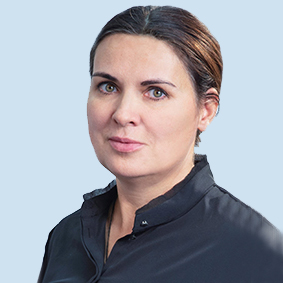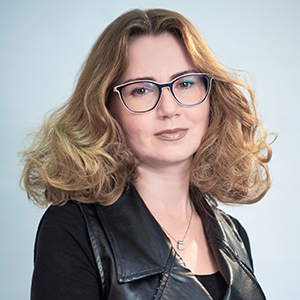General
Digital scientific and methodological journal “Methodology and Technology of Continuous Professional Education” is officially registered as an online publication (with registration certificate ЭЛ № ФС 77-75491 dated 04/05/2019) by the Federal Service for Supervision of Communications, Information Technologies and Mass Communications (Roskomnadzor). The journal is an online periodical (16+).
Website: rsmu.ru, e-mail: rsmu@rsmu.ru.
The journal publishes original articles in Russian and English, containing the results of applied and experimental research in the field of psychology, pedagogy, as well as review articles by leading experts on the subject of the journal.
Manuscript submission: registration or log in
Editorial Staff

Vera B NIKISHINA
Editor-in-chief

Olga F PRIRODOVA
Chairperson of the Editorial Board, Vice-Rector for Postgraduate and Additional Education
Objectives and Rationale
The peer-reviewed scientific and methodological journal “Methodology and Technology of Continuous Professional Education” is a periodical scientific publication of the N.I. Pirogov Russian National Research Medical University.
The purpose of the journal is scientific, methodological and information support for improving vocational education, prompt dissemination of reliable scientific and scientific-methodological information, broadcasting best practices in the development of methodology and technologies for continuous vocational education.
The journal publishes the results of original scientific research based on factual material using current scientific methodology, descriptions of new methods and technologies, case studies, as well as scientific and analytical reviews in the field of continuing professional education.
Basic thematic directions of publications:
- global and national trends and priorities, organizational and legal aspects of the development of continuing professional education;
- development of professionalism: methods, technologies and techniques for improving professional competencies and professional efficiency of specialists;
- assessment of the quality of professional education, professional and educational standards in the training of specialists;
- psychological-pedagogical and ethical-deontological problems of professional training and professional development throughout life;
- innovations in vocational education and training, problems of distance and mixed vocational education and training;
- collaborative interprofessional educational interaction of specialists and students;
- professional communication: organizational, informational, legal, ethical and psychological problems;
- management of professional knowledge, information equipment for professional activities and professional education;
- history of the development of professional and scientific schools.
The journal is focused on a high scientific level of publications with the potential for introducing research results into the practice of continuing professional education. The editorial staff includes the heads of activities of the Center for the Development of Continuing Medical and Pharmaceutical Education on the basis of the Russian National Research Medical University, who have extensive experience in methodological, expert and organizational work in the field of continuing education of healthcare professionals. Leading experts in relevant areas are recruited as reviewers on a voluntary basis.
Journal Sections
Directions of published research:
- 5.3.4. Educational psychology, psychodiagnostics of digital educational environments.
- 5.8.7. Methodology and technology professional education.
- 3.2.3. Public health, organization and sociology of healthcare, medical and social expertise.
Publication Periodicity
The frequency of publication of the journal is 4 issues per year.
Free Access Policy
The editors of the journal pursue a policy of open access to peer-reviewed electronic scientific publications, contributing to the improvement of scientific information exchange, as well as increasing the citation of works and, accordingly, the effectiveness of the scientific activities of authors published in the journal.
Access to all issues of the journal is free.
Peer Reviewing
All articles published in the journal are peer reviewed.
Reviewers
- Prirodova O. F. (N.I. Pirogov Russian National Research Medical University)
- Nikishina V. B. (N.I. Pirogov Russian National Research Medical University)
- Morgun A. N. (N.I. Pirogov Russian National Research Medical University)
- Zapesotskaya I. V. (N.I. Pirogov Russian National Research Medical University)
- Ettinger A. P. (Federal State Autonomous Educational Institution of Higher Education Russian National Research Medical University named after N.I. Pirogov, Ministry of Health of the Russian Federation)
- Buromsky I. V. (N.I. Pirogov Russian National Research Medical University)
- Fomina M. A. (Federal State Autonomous Educational Institution of Higher Education Russian National Research Medical University named after N.I. Pirogov, Ministry of Health of the Russian Federation)
- Efremova G. I. (FSBI RAO)
- Lazarenko V. A. (FSBEI HE KSMU of the Ministry of Health of the Russian Federation)
- Mendelevich V. D. (Federal State Autonomous Educational Institution of Higher Education KFU)
- Klyueva N.V. (P.G. Demidov FSBEI HE YarSU)
- Ilmars Stonans (Riga Stradins University)
- Tastan Tastanbek (MAPN, Kazakhstan )
- Gerhard Lenz (Austria)
Indexing
In order to increase the accessibility of scientific publications, the journal is posted in the RSCI and in open repositories.
Ethics of Scientific Publications
The future of science in general and the scientific publishing sphere depends largely not only on compliance with legislation and regulations, but also on compliance with the principles of ethical relations between participants in the scientific and publishing community. This is the key to increasing the number of high-quality scientific publications, as well as the successful development of mutual cooperation between authors, publishers and readers of scientific publications.
Common Terms
Ethics in scientific publications is a system of standards of professional conduct in the relationships between authors, reviewers, editors, publishers and readers in the process of creating, distributing and using scientific publications.
An Editor is a representative of a scientific journal or publishing house who prepares materials for publication and also maintains communication with the authors and readers of scientific publications.
An Author is a person or group of persons (team of authors) participating in the creation of a publication of the results of scientific research.
A Reviewer is an expert acting on behalf of a scientific journal or publishing house and conducting a scientific examination of copyright materials in order to determine the possibility of their publication.
A Publisher is a legal entity or individual who publishes a scientific publication.
A Reader is any person who has read the published materials.
Plagiarism is the deliberate appropriation of authorship of someone else’s work of science or art, someone else’s ideas or inventions. Plagiarism may be a violation of copyright and patent laws and, as such, may result in legal liability.
Principles of professional ethics in the activities of an editor and publisher
In his activities, the editor is responsible for the publication of copyrighted works, which imposes the need to follow the following fundamental principles:
- When making a decision on publication, the editor of a scientific journal is guided by the reliability of the data presented and the scientific significance of the work under consideration.
- The editor must evaluate the intellectual content of manuscripts without regard to the race, gender, sexual orientation, religious views, origin, citizenship, social status or political preferences of the authors.
- Unpublished data obtained from manuscripts submitted for consideration should not be used for personal purposes or transferred to third parties without the written consent of the author. Information or ideas obtained during editing related to possible benefits must be kept confidential and not used for personal gain.
- The editor should not allow information to be published if there are sufficient grounds to believe that it is plagiarized.
- The editor, together with the publisher, should not leave unanswered claims regarding the reviewed manuscripts or published materials, and if a conflict situation is identified, take all necessary measures to restore the violated rights.
Ethical principles in the activities of a reviewer
The reviewer carries out a scientific examination of the author’s materials, as a result of which his actions must be unbiased, consisting in the implementation of the following principles:
- A manuscript received for review should be treated as a confidential document that cannot be passed on for review or discussion to third parties not authorized by the editor.
- The reviewer is obliged to give an objective and reasoned assessment of the presented research results. Personal criticism of the author is unacceptable.
- Unpublished data obtained from manuscripts submitted for review should not be used by the reviewer for personal purposes.
- A reviewer who, in his opinion, does not have sufficient qualifications to evaluate the manuscript, or cannot be objective, for example, in the case of a conflict of interest with the author or organization, must inform the editor about this with a request to exclude him from the review process of this manuscript.
Principles that should guide authors of scientific publications
The author (or team of authors) is aware that he bears primary responsibility for the novelty and reliability of the results of scientific research, which presupposes compliance with the following principles:
- The authors of the article must provide reliable results of the research conducted. Claims that are known to be erroneous or falsified are unacceptable.
- Authors must ensure that the research results reported in the submitted manuscript are completely original. Borrowed fragments or statements must be formalized with the obligatory indication of the author and the original source. Excessive borrowing, as well as plagiarism in any form, including unquoted, paraphrased, or appropriation of the results of others' research, is unethical and unacceptable.
- It is necessary to acknowledge the contribution of all persons who in one way or another influenced the course of the study, in particular, the article should provide links to works that were important in the conduct of the study.
- Authors should not submit to the journal a manuscript that has been submitted to another journal and is under review, or an article that has already been published in another journal.
- Co-authors of the article must include all persons who made a significant contribution to the research. Among co-authors, it is unacceptable to indicate persons who did not participate in the study.
- If the author discovers significant errors or inaccuracies in the article at the stage of its consideration or after its publication, he must notify the editors of the journal as soon as possible.
Disclosure Policy and Conflicts of Interests
Unpublished data obtained from manuscripts submitted for consideration cannot be used in personal research without the written consent of the Author. Information or ideas obtained during the review process related to possible benefits must be kept confidential and not used for personal gain. Reviewers should not participate in the review of manuscripts if there are conflicts of interest due to competitive, collaborative or other interactions or relationships with any of the Authors, companies or other organizations associated with the submitted work.
Plagiarism
When reviewing an article, the editorial board of the journal “Methodology and Technology of Continuous Professional Education” can check the uniqueness of the material using the Anti-Plagiarism system. In case of detection of numerous borrowings, the editors act in accordance with the rules of COPE. When submitting a manuscript, authors should consider the publication’s borrowing policy.
Publication of Preprints and Postprints
During the article submission process, the author must confirm that the article has not been published or accepted for publication in another scientific journal. When referring to an article published in the journal “Methodology and Technology of Continuous Professional Education”, the publisher asks to post a link (full URL of the material) to the official website of the journal. Articles previously posted by the authors on personal or public websites that are not affiliated with other publishing houses are allowed for consideration.
